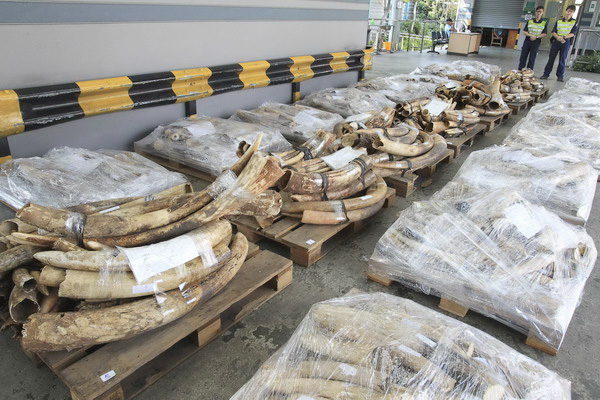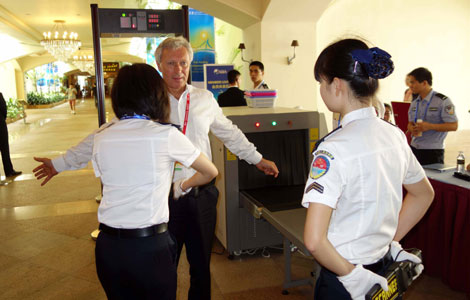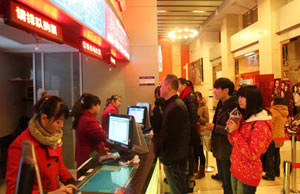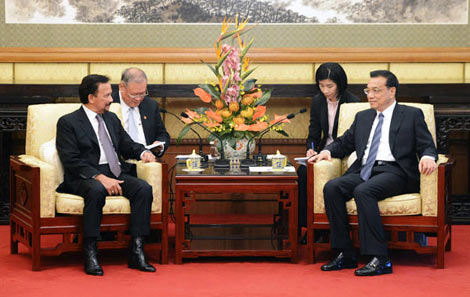
|
 Seized elephant tusks are displayed by customs authorities in Hong Kong in October. Ivory smuggling has fallen due to strict law enforcement in China in recent years. [Photo / China Daily] |
China's strict registration and management system can effectively keep illegal ivory from entering the domestic market, experts say.
According to Jin Yu, a researcher at Northeast Forestry University, China has launched an information control system stricter than the standards of the Convention on International Trade in Endangered Species of Wild Fauna and Flora, also known as CITES.
CITES is an international convention that regulates the ivory trade, and monitors ivory stockpiles, consumption and products.
"On every finished product, there is an ID card with information regarding the product's appearance, size and digital code, which can be used to obtain further information, including its original material, from an online database," she said.
"It's the only way to prove an ivory product is legal and should always be carried when selling or transporting ivory.
"Any trade without such a certificate can be identified as illegal."
However, lack of expertise and experience may cause inaccurate surveys and reports that lead to allegations that the market has ivory products from illegal sources, Jin said.
ID system aids
The registration system tracks ivory until it is a finished product, and cross-checks each stage of development for weight gain, Jin said.
This identification system, introduced in 2003, has greatly helped police, customs and other law enforcement officials crack down on illegal ivory, Jin said, adding: "Ivory products from legal stockpiles auctioned in 2008 are not allowed to go outside of China."
In addition, all factories that manufacture ivory products and stores that sell them are registered.
"Only with approval from the government that is published online can the manufacturers and stores be in the business at appointed places," said Yan Xun, an official with the State Forestry Administration. "Factories and stores without such approval are punished," he added.
"This helps law enforcement officers crack down on illegal operations," he said.
China's strict penalties for illegal trading in ivory, including smuggling, have deterred offenders, Yan said.
"The highest sentence is life imprisonment, which is one of the strictest punishments in the world."
Yan said the administration has noted that tourists traveling to Africa often buy ivory ornaments and just carry them back to China, unaware that they are breaking the law.
"Chinese embassies in African countries are taking action by warning tourists not to bring those products back," he added. "Ivory products are easily detected when they go through customs and are confiscated."
 'Cat model' to dazzle Shanghai auto show 2013
'Cat model' to dazzle Shanghai auto show 2013
 Models at Tokyo modified car show
Models at Tokyo modified car show
 Shanghai Fashion Week focuses on domestic brands
Shanghai Fashion Week focuses on domestic brands
 Angel-dress models at Shandong auto show
Angel-dress models at Shandong auto show
 Safe and Sound
Safe and Sound
 Theater firms scramble for managers
Theater firms scramble for managers
 Premier pledges closer ties with Brunei
Premier pledges closer ties with Brunei
 Volkswagen's all-new GTI at New York auto show
Volkswagen's all-new GTI at New York auto show